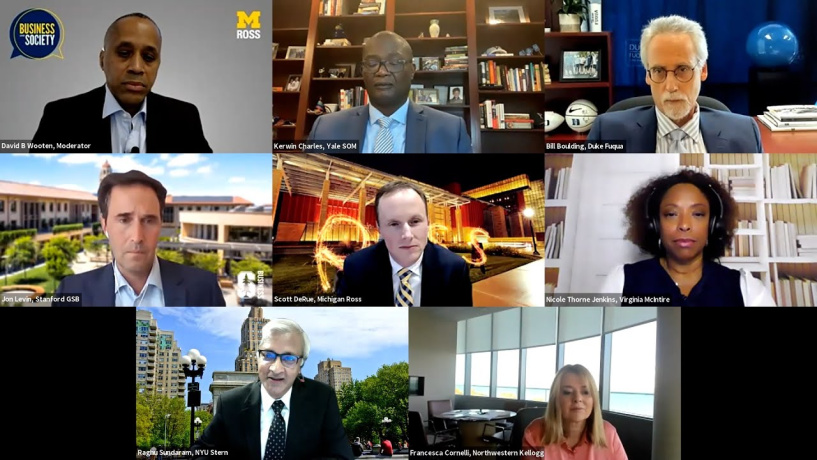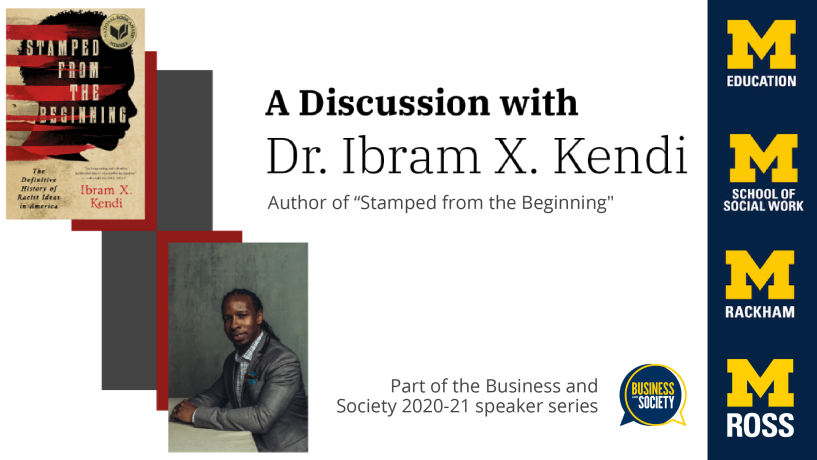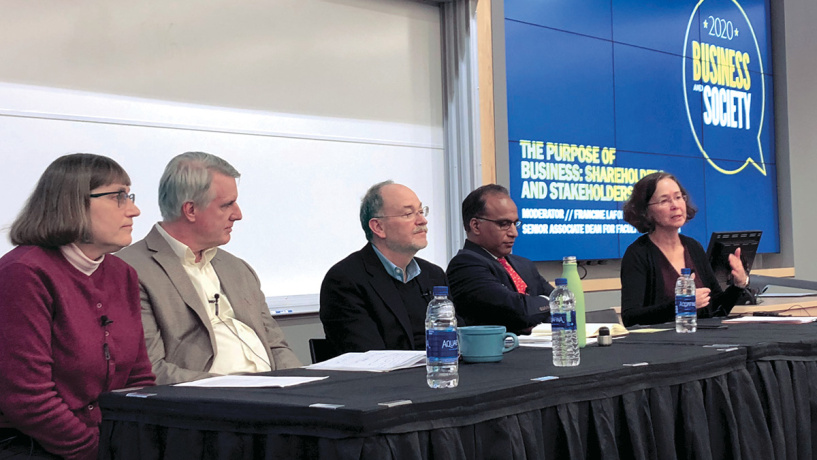Michigan Ross Alumni Share Their Experience and Insights into Overcoming Systemic Barriers to Black, Latinx Entrepreneurship
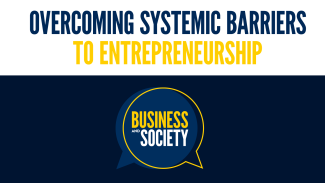
Over the past five years, less than 3% of venture capital funding went to Black and Latinx founders.
This startling statistic laid the foundation for an engaging panel discussion between alumni and friends of the Ross School of Business, all of whom are Black and Latinx entrepreneurs, into how to overcome systemic barriers to entrepreneurship and making venture capital more inclusive to entrepreneurs.
The event was part of the Michigan Ross Business and Society Series, and was moderated by Rashmi Menon, lecturer of entrepreneurship at Michigan Ross. Panel participants were: Vasco Bridges, MBA ‘10, chief of staff in distribution at Northwestern Mutual; Latresha (LC) Howland, MBA ’20, co-founder of Breadless; Marc Howland, co-founder and CEO of Breadless; Harlyn Pacheco, MBA ’12/ MPP ’12/ AB ’05, corporate business and strategy development at Microsoft Viva; and Marlo Rencher, MBA ’96, director of technology-based programs at TechTown Detroit.
The panel discussed their entrepreneurial journeys, including what resources they used to receive funding for their business ventures. For example, LC Howland said her first funding sources for Breadless involved tapping into support from the Zell Lurie Institute at Michigan Ross and the Eugene Applebaum Dare to Dream Program.
Panelists also talked about the challenges to entrepreneurship — from imposter syndrome to the fear of failure — and how they are working to make the entrepreneurial ecosystem more equitable and help other entrepreneurs succeed. In addition, they shared advice for aspiring entrepreneurs, such as on how to get started as an entrepreneur.
WATCH THE EVENT
Diversifying tech entrepreneurship with Marlo Rencher
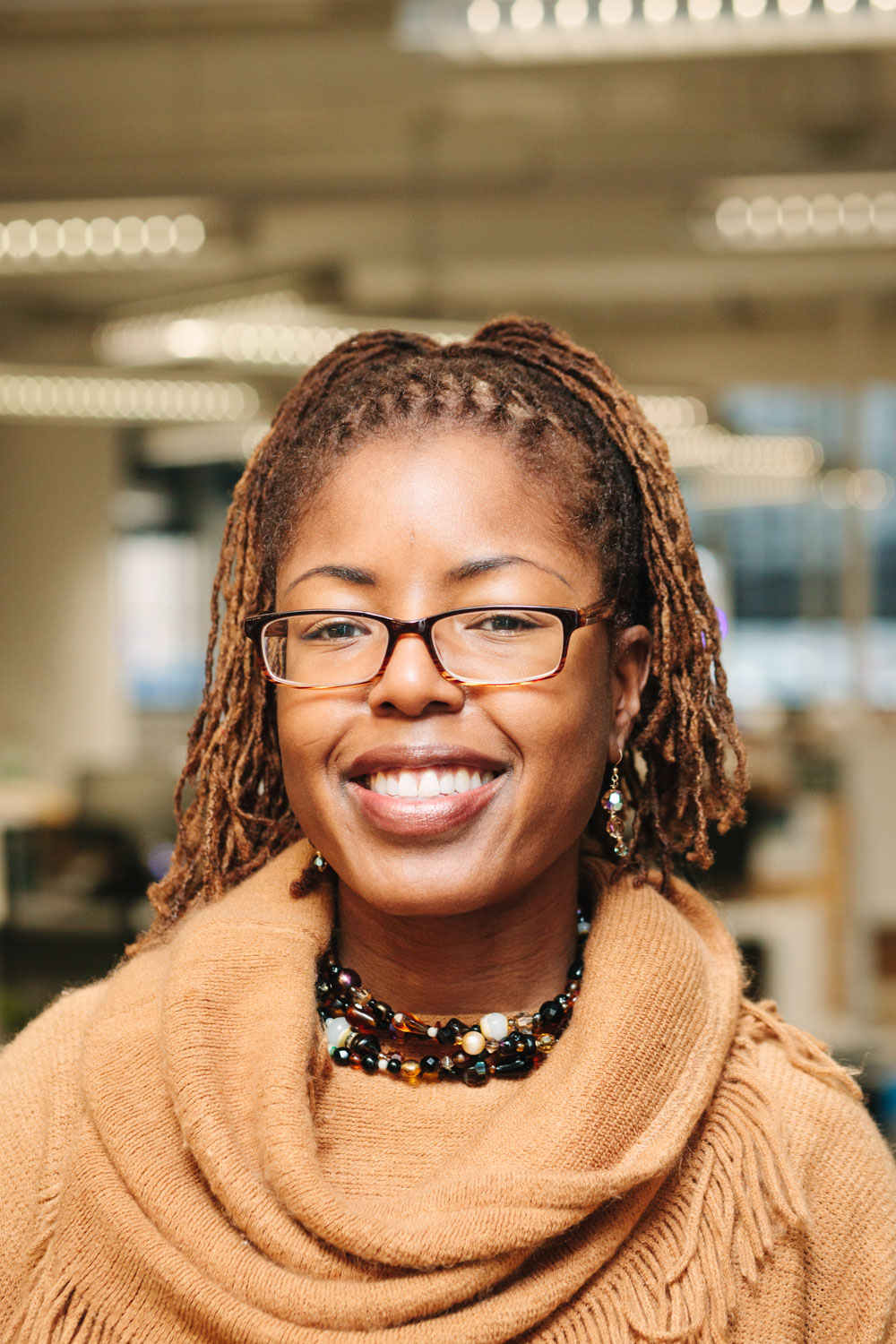
Before the event, Rencher answered a handful of questions related to her experience in tech entrepreneurship, and how she has used her Ross learnings to help diversify this quickly growing industry.
What are the most significant barriers you see to Black and Latinx entrepreneurs in launching their companies? What can be done to overcome these barriers?
There is a lack of access to and knowledge about capital. The family and friends round that many white founders typically have access to is a lot more difficult to get for Black and Latinx entrepreneurs. In addition, most angel investors and venture capitalists are not Black or Latinx, and may not feel connected enough personally to make a financial bet on a Black or Latinx founder. Some of this dynamic would be significantly mitigated if more Black and Latinx people controlled the capital. There also needs to be more training for entrepreneurs about how different types of funding work, so that founders can craft better funding strategies. I'm hopeful about the future, particularly about equity crowdfunding and other emerging asset classes that can increase the diversity of investors and put more capital in more startups.
Another barrier I see is a general sense that there are not any cultural biases around high-growth and tech entrepreneurship. The tech world is not often thought of as being a gendered and racially biased space. When Black and Latinx founders do not capture the same opportunities, then there is a sense that their companies are not as good as white companies. That can lead to a lack of confidence with Black and Latinx founders and structural bias in the way that some parts of the entrepreneurial ecosystem work. Entrepreneurial success is not solely tied to intelligence, creativity, ingenuity, and hard work. Being clear about the inherent bias of the space will help Black and Latinx entrepreneurs to navigate it more effectively and successfully. It will also help those who support entrepreneurship to see, acknowledge, and correct their blind spots.
At TechTown, how have you used what you learned at Michigan Ross to tackle the systemic barriers facing Black and Latinx entrepreneurs and increase diversity in tech entrepreneurship?
I learned a lot about strategic thinking during my time at Michigan. I learned about the importance of having a framework and structure to support the way you tackle a problem. At TechTown, my team's mission is to build the pipeline of tech founders that are in and of the city of Detroit. Given that focus, we have taken a very strategic approach to service development and delivery that is supported by a logical structure. Having that structure makes it easy to know the types of programs that make sense for our team and those that do not. It gives us a discipline of purpose that delivers more impact.
What does diversifying tech entrepreneurship look like?
Part of what diversifying tech entrepreneurship looks like is decentering the problems to be solved from any specific group or gender. I remember being a student at Michigan back in the day. Many of the entrepreneurial ideas that people would pursue in my classes were focused on a customer that looked very much like themselves — usually upper middle-class with high levels of education, white, American, and with no visible disabilities. More to the point, I hope that it is not just Michigan Ross students who get to lead tech entrepreneurship. I would like to see a world where a very wide group of people get to explore how they can create value for a wide range of people. That means they have access to the tools and capital to make it happen. The no-code movement is helping with that. The diversification of the control of capital is also helping. This shift provides an opportunity for significant financial and social impact across the board. Smart investors understand that and will be able to produce outsized returns if they follow that philosophy.
Are there any lessons/insight you learned at Michigan Ross that have helped you overcome challenges you may have faced being a Black female business leader?
The biggest lesson that I learned when I was at Michigan Ross is that I am as smart and capable as anyone else in just about any room I find myself in. I remember initially being intimidated when everyone in my section introduced themselves and spoke about their accomplishments at the beginning of my program. As I got to know and work with my fellow students, I found out that they were an impressive group, but also that I deserved to be a part of that group.
What advice would you give to aspiring Black and Latinx entrepreneurs looking to get into the tech industry?
My advice would be to find a thorny and interesting problem. Make it one with which you have some unique insight or approach. It has to be a problem that you are passionate about solving, because that passion will fuel your long-term stamina. Then build your solution while keeping a very open dialogue with your potential customers. Don't let the lack of a technical background deter you, use a no-code tool. Don't let self-doubt deter you, tap your supportive friends, earn a co-founder (by making progress), and recruit a mentor. Be bold. Ask for help. Do the work. Take care of yourself.





